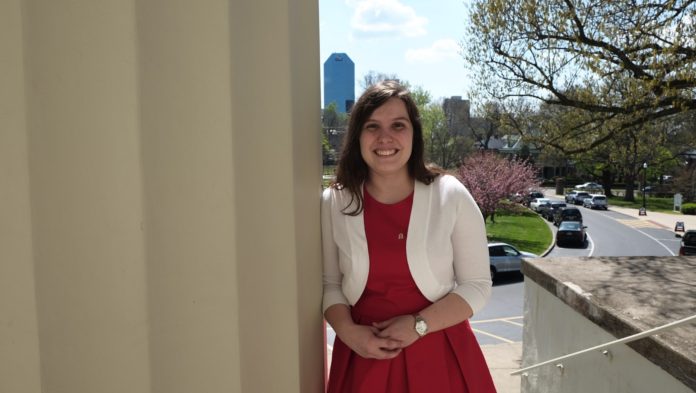The recent staffing changes in the Campus and Community Engagement office offer the Greek community a unique chance to implement changes and have suggestions heard by new ears. Though Greek life has a well-established way of operating, there are always improvements to be made and better ways of doing things. One change that would be quite beneficial to this campus, for both Greeks and non-Greeks, is implementing second semester recruitment.
Second semester recruitment would help bridge the gap between Greeks and non-Greeks by giving students a longer time to form friendships before joining a Greek organization. Currently, first year students only have about a month to form friendships, which are promptly strained when the recruitment period begins. Many students make a strong effort to try to remain friends with those that did not join their Greek organization, but the amount of time that new member programs require and that organizations want to spend with their new members is quite demanding and often splinters outside friendships. By delaying recruitment, students would be encouraged to form friendship outside the lines of Greek life. Relationships with other students would not be as easily strained and should help decrease the tension between Greek students and non-Greek students by sustaining those relationships.
Furthermore, the first couple weeks of Fall Semester often feel even more overwhelming than finals week— new students are still acclimating to campus, students join many more clubs than they should, and, of course, recruitment begins. Moving recruitment to second semester would ease the pressure on freshman students and allow them to adjust to college life before having to make such a large commitment. Though recruitment is inherently stressful, and would still be stressful during the second semester, letting freshmen adjust to college life would help potential new members feel more comfortable during recruitment, and allow students who previously felt too overwhelmed by school to participate in recruitment.
Non-Greek organizations would benefit heavily from a delayed recruitment as well. Without having to worry about the commitments of Greek life, other clubs and organizations would see a surge in membership during freshmen’s first semester when they crave involvement. Some of this involvement may drop off when the students later join Greek life, but some of those students would surely stay and remain contributing members in clubs they otherwise would not have joined. This in turn would help build relationships not bound to Greek life and strengthen the membership of other clubs.
Though it would be a massive change, Greeks too would benefit from second semester recruitment. Delaying recruitment would give Greek members a chance to get to know the freshman class better, and avoid having people put on false fronts during recruitment. It would allow chapters to set GPA requirements since fall grades would be in, as well as develop a more effective recruitment strategy tailored to the freshman class. Such a time delay would eliminate the need for unaffiliation and the incredible set of rules pertaining to silence, interactions with potential new members, and wearing letters. Overall, it would allow Greek chapters to interact more with the freshmen rather than having freshmen make surface-level judgments about each chapter.
Even though the transition would be difficult and inevitably met with resistance, second semester recruitment could help the entire campus with issues like student stress, campus involvement, and cliques. The resistance is understandable- Transy has always participated in fall recruitment and it would be a strange adjustment for chapters that would require large amounts of work for the transition. But, the benefits of second semester recruitment outweigh the challenges; it would give students time to learn about whether Greek life is right for them to confidently make a decision that will change their college experience regardless of whether they choose to participate in Greek life or not.



